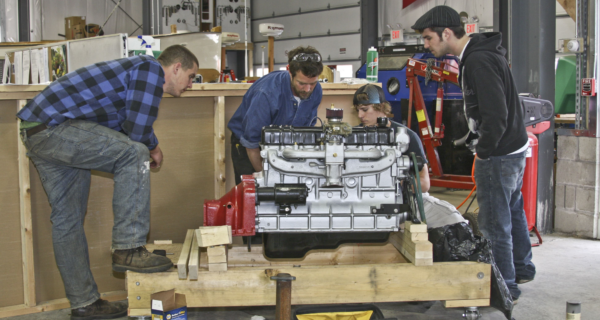Outdoor Recreation Roundtable praises wildfire funding reform
The Outdoor Recreation Roundtable (ORR), of which the National Marine Manufacturers Association is a leading member, celebrates passage of wildfire funding reform as part of the FY18 Omnibus Spending Bill.
This new legislation supports long-term wildfire mitigation practices and safeguards important forest programs including recreation, ensuring Americans continue to have access to healthy, active outdoor recreation on their public lands.
“We support comprehensive wildfire funding solutions paired with reasonable forest management reforms that reduce wildfire risk. This solution ends borrowing from non-wildfire programs and reductions in recreation and fisheries programs, projects and infrastructure that have impaired visitor access and enjoyment,” said NMMA President Thom Dammrich.
Wildfire costs have risen out of control, constraining other federal agency efforts and jeopardizing public lands recreation programs and projects vital to an outdoor recreation industry that accounts for 2 percent of the nation’s Gross Domestic Product and $673 billion in gross output according to the Bureau of Economic Analysis.
The U.S. Department of Agriculture reports that wildfire suppression costs surpassed $2.3 billion this year, with more than 8.5 million acres burned. In addition to the tragic loss of lives and homes, vital recreation infrastructure has been destroyed.
Fire suppression activities continue to rise as a percentage of the U.S. Forest Service’s (USFS) budget. This rise has reduced investments in trails, campgrounds and other recreation infrastructure, much of which needs modernization and expansion.
Mid-year borrowing from recreation construction and operation accounts to meet firefighting costs has forced reductions in Congressionally-approved agency recreation efforts, adversely impacting the experiences of millions and having harmful consequences for gateway communities.
Even where Congressional action has provided some repayment of borrowed recreation funds, delays in construction and maintenance have added costs and disappointed forest visitors.
USFS reports that 80 million acres of its forest lands are at high risk of catastrophic fire. This risk can be reduced with proactive forest management, but the increasing cost of firefighting has cut this management and other non-fire programs.
In the last two decades, the number of USFS employees has dropped from 19,000 to 11,000 while the number of firefighters has doubled. The agency anticipates that it might expend more than 66 percent of its budget to firefighting by 2021, compared to 16 percent in 1995.




